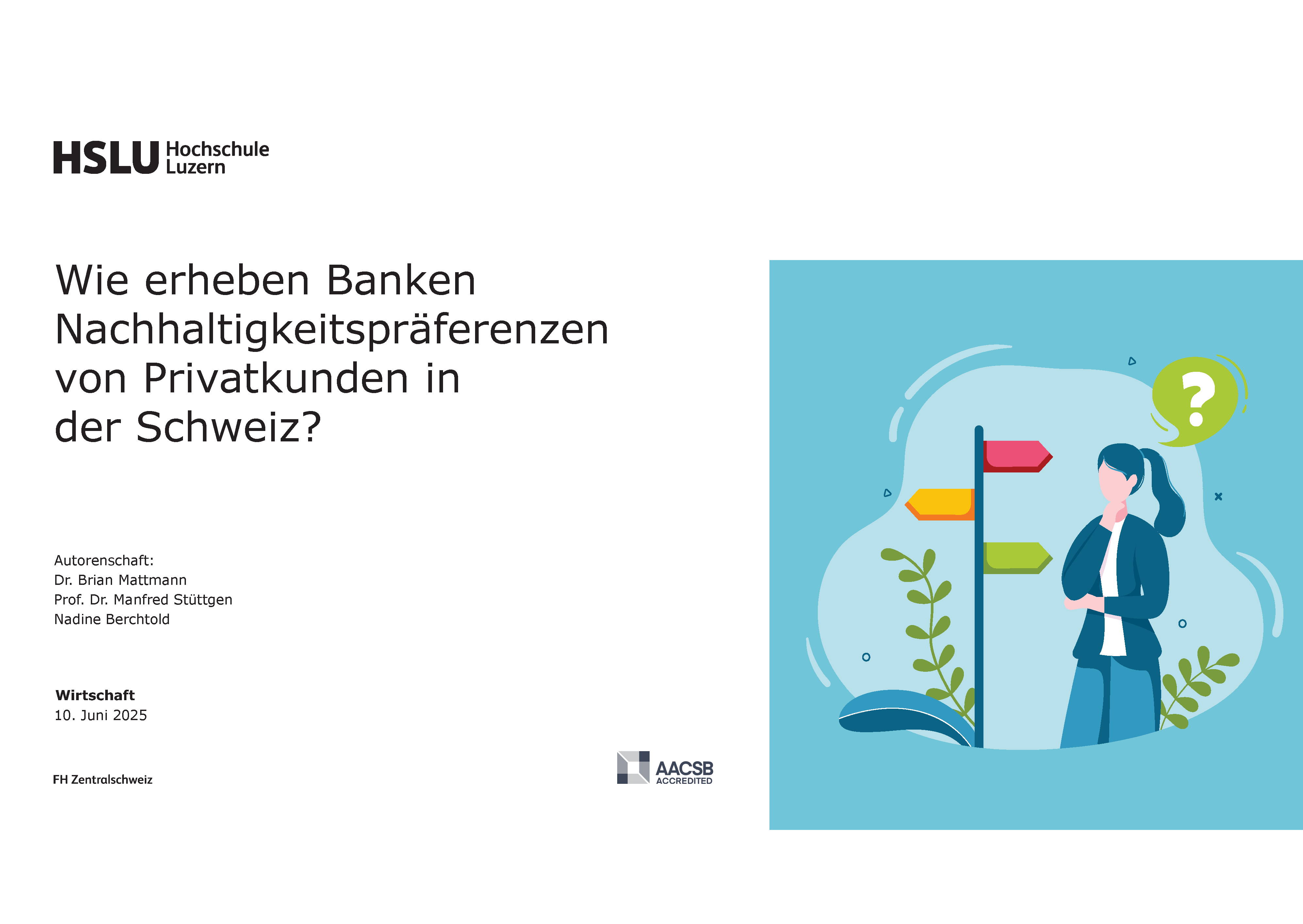22. Mai 2023
Swiss Independent Wealth Managers Prefer Screenings and Thematic Investments as ESG Strategies
Two-thirds of Swiss independent wealth managers integrate sustainability criteria into their investment processes - as can be seen here. Screenings and sustainable thematic investments are their preferred ESG strategies. This shows our latest study on wealth managers’ investment behavior, the «VSV-ASG Investment Pulse».

The full report can be downloaded here.
Authors: Manfred Stüttgen/Nadine Berchtold
Our recent survey of Swiss independent wealth managers’ investment behavior shows that two-thirds of the wealth managers do include sustainability criteria in their investment processes – either by default or on clients’ requests. In our survey, we asked those two groups of wealth managers for their preferred ESG strategies in the investment processes. The results indicate that the typical wealth manager uses multiple ESG strategies. Wealth managers who always include sustainability criteria usually use more ESG strategies, though, compared to a wealth manager who only includes sustainability criteria on client request. On average, the first group uses more than three ESG strategies, while the second group uses only slightly more than two.
Wealth managers often apply Best-in-Class/Positive Selection and Thematic Approaches
Positive and negative screenings, as well as sustainable thematic investments, are the most popular ESG strategies for wealth managers: «Best-in-Class/Positive Selection» is by far the most favored ESG approach, and it is significantly more popular among wealth managers who always include sustainability criteria. «Sustainable Thematic Investments» is the second most popular sustainability strategy, with almost half of the wealth managers who include sustainability criteria applying this strategy, regardless of their general ESG attitude.
Climate Strategies, Impact Investing and ESG-Engagement & -Voting are rare
Climate strategies, impact investing, and engagement/voting are much less favored by wealth managers, particularly by the group of wealth managers who do integrate sustainability criteria only if clients request it. ESG integration as a sustainability strategy ranks somewhat in the middle between the most often and the least often applied sustainability strategies. The fact that «Engagement & Voting» is the least popular ESG strategy among both segments of wealth managers does not come as a surprise. An active ESG Engagement (a.k.a. ESG dialogue; Stewardship) requires significant resources to be effectively implemented, particularly when it is applied to portfolio holdings from abroad. Implementation is costly and a measurable impact of an ESG engagement is not easy to achieve.
Conclusion
Sustainability strategies are increasingly enriching the investment toolbox of Swiss independent wealth managers. Those ESG strategies that are easily applicable, such as screenings (Best-in-Class/Positive or Negative) and those that are particularly attractive to private investors such as sustainable thematic investments are leading the way. Not surprisingly, climate strategies or ESG engagements are less popular: their implementation is challenging, costly, and not always a good fit with wealth managers’ priorities.



Kommentare
0 Kommentare
Danke für Ihren Kommentar, wir prüfen dies gerne.